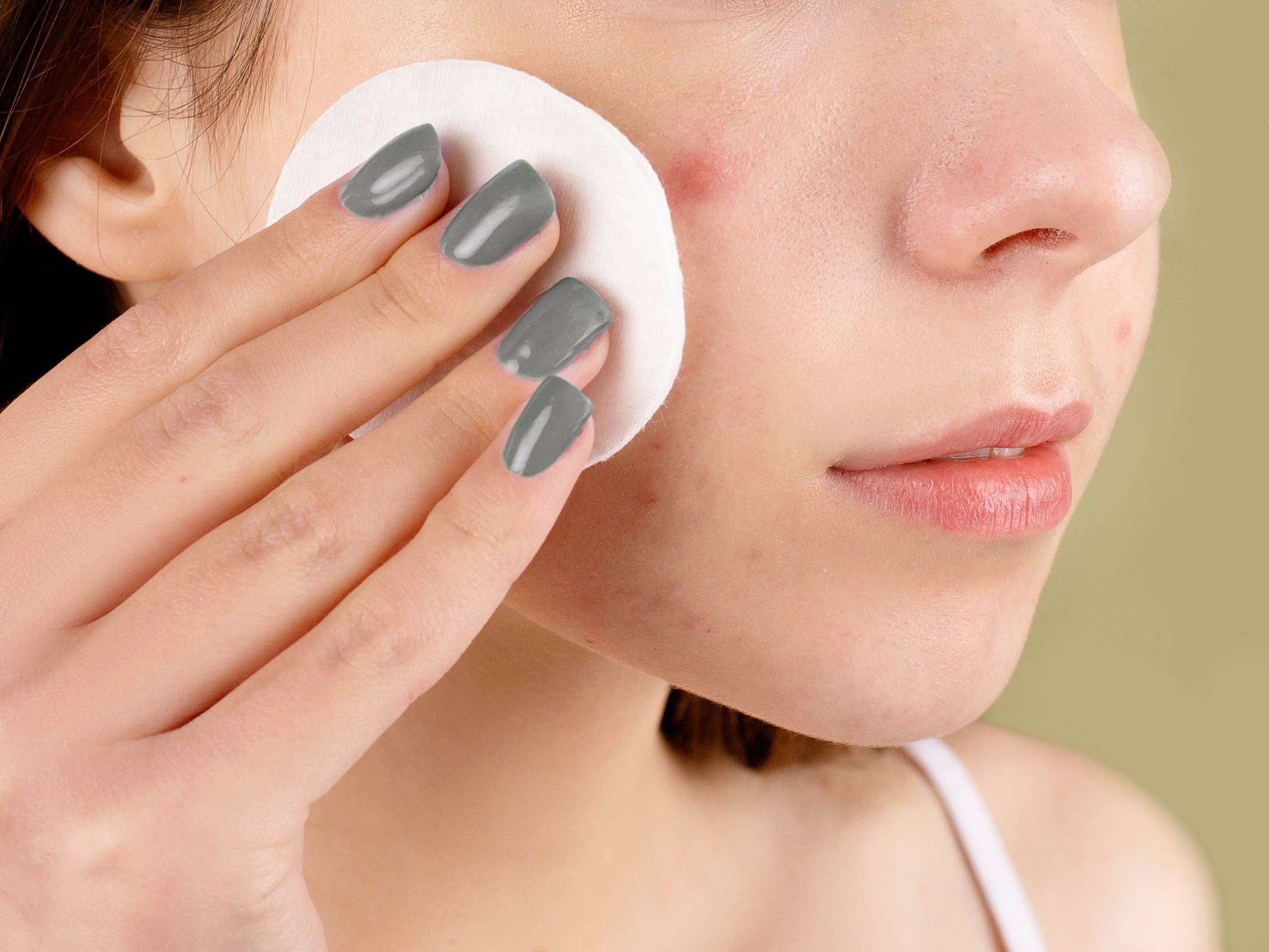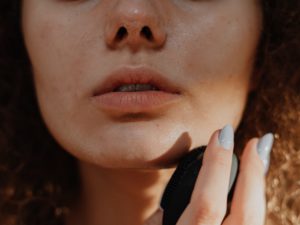The Best Skincare Ingredients that Fade Acne Dark Spots
It’s perfectly normal to get a pimple every now and then, but how your skin heals afterward is up to you. Some skincare ingredients can make issues worse while others fade acne dark spots in just a couple of days.

We all get breakouts and acne, then have to deal with the fallout. Keep reading to make your skincare journey a fun adventure with science-based information on the best ingredients proven to fade acne dark spots today!
What Causes Acne Dark Spots
In essence, dark spots are a form of inflammation and irritation on the skin, usually caused by follicles becoming plugged. This is usually due to an oil gland getting blocked by bacteria, dirt, or dead skin.
After a breakout or acne, the skin has to heal, repair the area, and make new skin. Sometimes, due to several factors including light exposure, genetics, and diet, the skin will produce too much melatonin in the healing process. This results in dark spots caused by acne. Luckily, there are ways to face acne dark spots from home, without invasive treatments. However, there are some cases where you will need to go see a dermatologist with professional equipment, but that is mostly in severe cases.
Best Skincare Ingredients to Fade Acne Dark Spots
Here are the top science-based ingredients that are sure to help improve skin health and appearance. They can help you fade acne dark spots, or even prevent them from forming!
Sunscreen
This is a skincare ingredient designed to prevent the formation of acne dark spots. SPF will protect your skin from UV rays that can darken spots, cause inflammation, and dry out the skin. Too much sun may also cause irritation, sensitivity, discoloration, and redness in the skin. This ingredient should be used in a morning skincare routine.
Salicylic Acid
Salicylic acid is an exfoliating ingredient in the BHA family (beta-hydroxy acids). Due to its small size, it can penetrate deep into pores to help clear out the skin while removing dead skin cells. Salicylic acid also helps kill off bacteria that may be causing acne as well. This ingredient should be used at night to avoid damage from the sun during the day.
Glycolic Acid
This acid is also an exfoliating ingredient, but it is in the AHA family (alpha-hydroxy acids). Glycolic acid has the added benefit of stimulating collagen production which can be good for cell turnover. It helps remove dead skin cells and has a hydrating effect. This ingredient should also be used at night since it does cause sensitivity.
Retinoids
Retinoids are a form of vitamin A that has the most research behind it as a skincare ingredient. While many use it as an anti-aging ingredient, retinoids work by increasing cell turnover, making them great to fade acne dark spots. While there are many forms of retinoids, common ones (without a prescription) are retinol and retinal. Another form, adapalene, is a type specifically used to reduce acne and fade acne dark spots.
Niacinamide
Niacinamide is a hero skincare ingredient with many benefits like reducing redness, controlling oil production, or even reducing dark spots. Research suggests that formulas with about 5% can be very beneficial in evening skin tone out. Get your complete guide to using niacinamide here!
Vitamin C
Vitamin C works by inhibiting melanin production, increasing cell turnover, and stimulating collagen production. This skincare ingredient should be used in a morning skincare routine as it can also be used as an antioxidant to reduce irritation caused by pollutants during the day. Using vitamin C and sunscreen at the same time has also been found to boost the effects of both.
Azelaic Acid
This is another underrated yet highly effective skincare ingredient for many issues. It can help treat redness, increase hydration, reduce inflammation, and fade acne dark spots. Azelaic acid can also kill bacteria on the skin that causes acne in the first place! Here is everything you need to know about this ingredient in a short guide!
Time
Time and patience are the top-tier ingredients in terms of healing the skin. You can help the body repair itself with the science-based skincare ingredients above, but you need to give your body the time it needs to use the ingredients and heal. Acne and the dark spots left over are wounds that need to be taken care of on a journey toward healthy, happy skin.
Bonus Skincare Tip to Fade Acne Spots
To fade acne spots, you’re going to want to try to help your skin clean up! It’s difficult to manage spots when you’re still breaking out. Since many breakouts can be due to dirt, bacteria, and dead skin cells, it’s important to add this step to your skincare routine: double cleansing.
Double cleansing is when you use an oil or balm cleansing to break down any waterproof sunscreen, makeup, and dirt, then use a gel or cream base cleanser to finish getting everything off. It can be a great way to make sure the skin is clean without drying it out or destroying the skin barrier.
When to Seek a Dermatologist
If your breakouts are very severe, it may be time to go to a dermatologist. They will be able to prescribe you antibiotics, other forms of retinoids, or an acne prevention ingredient like benzoyl peroxide. For example, one of the stronger retinoids, tretinoin, is only available through a prescription from a dermatologist!
Seek out a dermatologist if you have concerning spots that change color or grow in size, and make sure you ask all the questions you need to!
The Takeaway
It can be hard to fade acne dark spots, but with the right skincare ingredients and patience, it is not impossible. You can use certain skincare ingredients to support skin health in its repair and recovery. No matter what, the skin needs time to heal so allow yourself the time to appreciate the steps you take. Skincare is a journey about progress, not perfection.
Remember that health comes from within, so eat nutritious food, exercise when you can, and take care of your mental health. Daily habits become building blocks for emotional, mental, and physical health. Don’t forget to take care of your gut microbiome health as well! Learn everything you need to know about gut microbiota today for free here.





